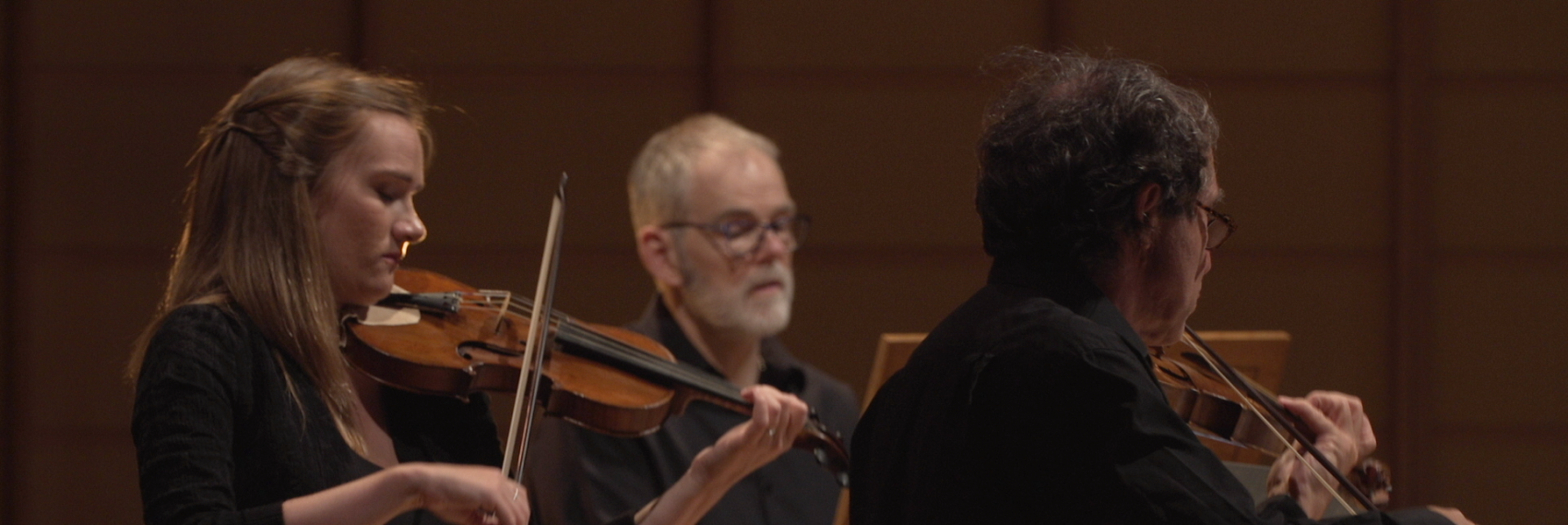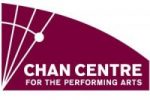La Modestine; Marc Destrubé, Violin; Kathryn Wiebe, Violin; Jeremy Berkman, Sackbut; Natalie Mackie, Viola da Gamba; Katrina Russell, Dulcian; Michael Jarvis, Organ
The audience for ‘classical music’ is well familiar with instrumental music from Corelli to Stravinsky, but largely ignores some wonderful repertoire composed before and since. This program highlights instrumental music composed in Austria and Italy in the 17th century, a time when composers innovated and experimented with musical forms, and explored the technical possibilities and distinct sonorities of individual instruments, including the sackbut (early trombone) and dulcian (early bassoon) as well as string and keyboard instruments.
This concert is generously supported by Anona Thorne & Takao Tanabe.
HOW TO WATCH:
Online: Watch the concert online by clicking here
This concert is available to watch for free thanks to the generosity of donors. To support our programming by making a tax-deductible donation, click here.
Concert will remain online one year from premiere date.
Dario Castello (1602-1631)
from Sonate concertate in stil moderno, libro primo (1621):
Sonata Quarta for violin, trombone and basso continuo
Sonata Nona for two violins, bassoon and basso continuo
Girolamo Frescobaldi (1583-1643)
from Canzoni da sonare a una, due, tre et quattro (1634):
Canzon Prima à due bassi, for trombone, bassoon and basso continuo
Canzon Sesta à canto e basso
for violin, bassoon and basso continuo
Antonio Bertali (1605-1669)
Sonata à 3 in d minor
for two violins, trombone and basso continuo (viol)
Johann Heinrich Schmelzer (1620-1680)
Sonata IX in a minor for violin, viola da gamba and basso continuo, from Duodena Selectarum Sonatarum (1659)
Heinrich Ignaz Frans van Biber (1644-1704)
Sonata à 3 in d minor for two violins, trombone and basso continuo
Programme Notes
The early years of the 17th century witnessed the evolution of a new style of music-making in Northern Italy, known as the ‘Seconda Pratica’ or ‘Stile Moderno’, which saw the development of a clear and simple style with one or more independent voices set against an accompanying basso continuo, and allowing for increased freedom of ornamentation as compared to the Prima Pratica. First developed by composers such as Monteverdi and Caccini, this style also saw the flourishing of virtuosic instrumental music, as exemplified by the Venetian Dario Castello, who gave independent parts not only to violins but also to the sackbut (trombone) and dulcian (bassoon).
Castello appears on the title page of his first volume of sonatas for various instruments as ‘Capo di Compagnia de Musichi d’Instrumenti da fiato’ in Venice, indicating that he led a band of wind instrument players or piffari. Several years later he was employed as a violinist and leader of the instrumental ensemble at the San Marco cathedral, where Claudio Monteverdi was the maestro di capella and Castelllo’s father and brother also played. His use of patterns of fast repeated notes (‘Stile concitato’) shows the influence of Monteverdi. He was one of the first to specify the instrumentation for his sonatas, and was influential in the evolution of the canzona into the sonata.
To the south in Rome, Girolamo Frescobaldi not only created a virtuosic style of keyboard music but also wrote extensively for various combinations of instruments; he was one of the earliest European composers to focus on instrumental composition. A child prodigy on the organ, he spent much of his adult life as organist at St. Peter’s Basilica. As a composer his influence was wide: his keyboard style strongly influenced that of Froberger, Bach, Purcell, and many others, and music from his collection of liturgical organ music, Fiori musicali (1635), was used as a model of strict counterpoint into the 19th century. His collection of canzonas, Il Primo Libro delle Canzoni, one of eight collections of instrumental pieces published in his lifetime, exists in two editions published in Rome in 1628, and in a Venice edition from 1634 with major revisions.
Frescobaldi also explored the ‘stylus fantasticus’ a style of instrumental composition originating with Claudio Merula in Venice and described by the author, scientist and inventor Athanasius Kircher as:
“…the most free and unrestrained method of composing, it is bound to nothing, neither to any words nor to a melodic subject, it was instituted to display genius and to teach the hidden design of harmony and the ingenious composition of harmonic phrases and fugues.”
Antonio Bertali from Verona brought this style to the Austrian court of Emperor Ferdinand II, becoming court kapellmeister there in 1629.
A virtuoso violinist, he did a great deal to promote the performance of Italian opera in Vienna, to which he made important contributions, along with composing instrumental pieces in a lavish style with imaginative combinations of instruments. His importance and enduring reputation as a composer have been negatively affected by a large part of his compositional output having been lost.
A decade later Bertali was joined among the Hapsburg court musicians, which also included Valentini (whom Bertali succeeded as kapellmeister) and Johann Froberger, by the violinist Johann Heinrich Schmelzer, who himself eventually became kapellmeister in 1679, under the reign of Leopold I. Schmelzer was the foremost Austrian composer of instrumental music of the time; his sonatas for violin and basso continuo, Sonatae unarum fidium (1664), were the first published works for the violin by a composer from the German-speaking lands. He also composed music for equestrian ballets as well as an instrumental suite depicting a fencing lesson.
Schmelzer likely had an important influence on Heinrich Ignaz Franz Biber, who is believed to have been one of Schmelzer’s students. Biber spent most of his life as composer at the court of the Archbishop of Salzburg. Despite not touring widely as a violinist he gained wide recognition through his published music, which expanded violin technique well beyond that of contemporary Italian composers. His monumental Passacaglia was one of the earliest extended works for solo violin, and his influence on violin playing and on other composers spread across Europe. Along with his compositions for the violin, he composed many large-scale sacred vocal works for performance in the Salzburg Cathedral, as well as programmatic music such as the battle-piece Battalia, and a Sonata representativa depicting the sounds of birds and animals.
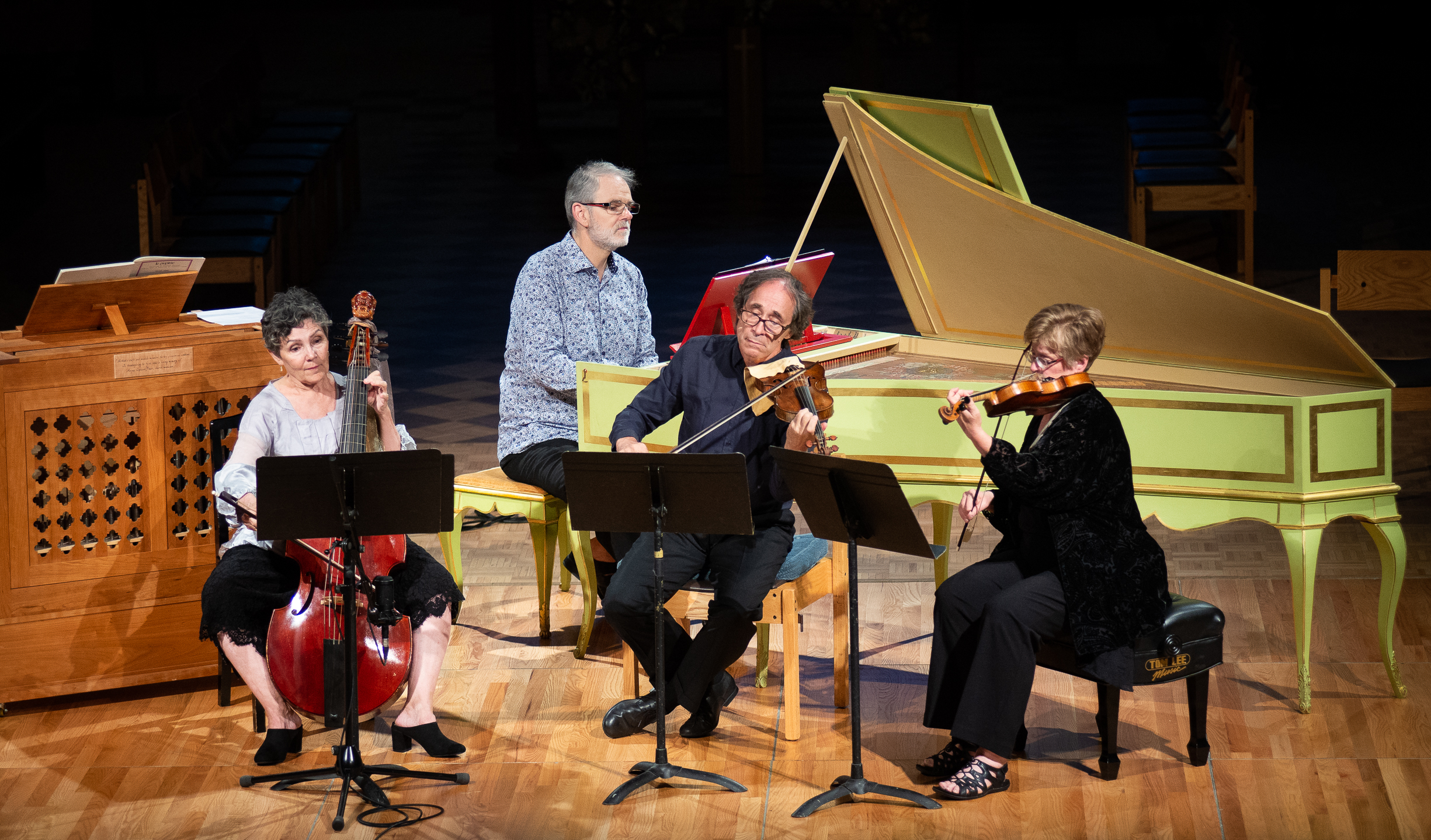
La Modestine
La Modestine was formed in 2016 by four renowned musicians who discovered that playing together was one of their great joys. La Modestine’s repertoire focuses on music of the Baroque for one or two violins, viola da gamba and basso continuo. Members include Marc Destrubé, Natalie Mackie, Kathryn Wiebe and Christina Hutten.
Marc Destrubé enjoys a diverse international career on historical and modern violins, performing as soloist, chamber musician, concertmaster or director/conductor. He is co-concertmaster of the Orchestra of the 18th Century (Amsterdam), first violinist of the Axelrod String Quartet (Smithsonian Institution, Washington, DC) and of the Vancouver quartet Microcosmos, and is a regular guest director and soloist with the Australian Brandenburg Orchestra, the Australian Haydn Ensemble and Lyra Baroque Orchestra. In Vancouver he has been director of the Pacific Baroque Orchestra, concertmaster of the CBC Radio Orchestra and first violinist with the Purcell String Quartet. He performs regularly for Early Music Vancouver, is Artistic Director of the Pacific Baroque Festival (Victoria), a member of the Turning Point Ensemble, and concertmaster of the Oregon Bach Festival Baroque Orchestra. His recording of Haydn violin concertos (ATMA) has been critically acclaimed, and he has commissioned and premiered numerous works by Canadian composers. A highly-respected teacher, he has been a visiting artist at the Paris, Utrecht and Moscow Conservatories, the Banff Centre, University of Indiana, Case Western University, UVic, UBC and VCC. He is on the faculty of the Berwick Academy at the Oregon Bach Festival and course co-director of the Twin Cities Baroque Instrumental Programme. http://marcdestrube.com
The passionate artistry of violinist Linda Melsted has won the hearts of audiences across North America, Europe, and Japan. Currently concertmaster of Seattle Baroque Orchestra, she has appeared as soloist, member, and leader of many outstanding ensembles, including Tafelmusik, Portland Baroque Orchestra, Pacific MusicWorks, Pacific Baroque Orchestra, and Freiburg Baroque Orchestra. Linda is the featured soloist in Tafelmusik’s documentary “Le Mozart Noir”, and has recorded for Sony, ATMA, Classique, and Harmonia Mundi.
Linda’s true love is chamber music. She has performed with many ensembles in chamber music series from Toronto to Seattle including Early Music Vancouver, Gallery Concerts, Northwest Showcase, Camerata Musica, Folia, Discovery Island Music Festival, La Primavera, and Toronto Music Garden. She is co-founder of the chamber ensemble sound|counterpoint (www.soundcounterpoint.org) as well as the Cosi Quartet, a classical oboe quartet, and the Salish Sea Players (www.salishseaplayers.org), a group dedicated to bringing early music to retirement and nursing facilities in the greater Seattle area. Linda is also a cat lover and shares her home with three cute kitties – Gus, Gerome, and Kalli. Linda performs on a Nicolo Amati violin.
Natalie Mackie studied cello at the Conservatoire de Musique (Québec), followed by a degree from the School of Music, University of British Columbia. While at UBC, she began studying viola da gamba as well, and later pursued further studies at the Koninklijk Conservatorium in The Hague. Natalie has played with many ensembles in Canada and the U.S., including New World Consort, Les Coucous Bénévoles, Tafelmusik Baroque Orchestra, Seattle and Portland Baroque Orchestras, Les Voix Humaines, Les Voix Baroques, Tempo Rubato, Oregon Bach Festival Orchestra, Victoria Baroque Players, Vancouver Intercultural Orchestra, and others. She has toured throughout Canada, the U.S. and Europe, playing in cities such as New York, Boston, San Francisco, at London’s Wigmore Hall, Paris, Cologne, Strasbourg, Utrecht and Bologna, among others, and has recorded for Radio France, German Radio, BBC, CBC, and NPR, as well as the Canadian label Atma Classique. She plays violone, viola da gamba, and occasionally baroque cello, in Pacific Baroque Orchestra and the Bach Cantata Project players, and frequently appears in Early Music Vancouver’s summer Festival. Natalie also has a passionate and abiding interest in new music and performs newly commissioned works both as a soloist and with the ensembles of which she is a member.
Michael Jarvis has been called one of Canada’s finest harpsichordists, fortepianists and continuo players, and is in demand as a collaborative artist. He may be heard on Marquis, Hungaroton, ATMA, and Naxos CDs, as well as London Records, and has broadcast nationally for the CBC and in the US on NPR. Michael hosted three specials on Bravo-TV: “A Baroque Christmas”, “A Baroque Easter” and co-hosted the13-part series on 19th-century domestic music, “Come into the Parlour”. He conducted in Toronto the premiere of the 12-tone opera “Cassandra” by Vancouver composer Ian McAndrew to rave reviews in Opera Canada. His performing editions of 17th/18th century choral and organ music have been published by GIA, Chicago. He has taught harpsichord at the University of Toronto, Wilfred Laurier in Waterloo, and Havergal College, Toronto, and fortepiano at UBC. Recently he has worked with violinist Paul Luchkow in an exploration of the Classical/Romantic sonata repertoire. Their recording of Hummel Sonatas (a Western Canada Music Award nominee, on a fortepiano from 1800) for fortepiano and violin/viola is available on Marquis Classics. His forthcoming CD on the Marquis label, the complete sonatas for harpsichord and violin (on mythological themes), op.25 by Michel Corrette, is currently in post-production. Michael lives in Victoria, BC.
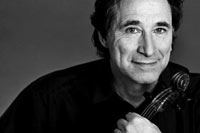
Marc Destrubé, Violin
Canadian violinist Marc Destrubé is equally at home as a soloist, chamber musician, concertmaster or director/conductor of orchestras and divides his time between performances of standard repertoire on modern instruments and performing baroque and classical music on period instruments.
As a concertmaster, he has played under Sir Simon Rattle, Kent Nagano, Helmuth Rilling, Christopher Hogwood, Philippe Herreweghe, Gustav Leonhardt and Frans Brüggen. He is co-concertmaster of the Orchestra of the 18th Century with which he has toured the major concert halls and festivals of the world. He was concertmaster of the CBC Radio Orchestra from 1996 to 2002, concertmaster of the Oregon Bach Festival Orchestra, and founding director of the Pacific Baroque Orchestra.
He is first violinist with the Axelrod String Quartet, quartet-in-residence at the Smithsonian Institution in Washington D.C., where the quartet plays on the museum’s exceptional collection of Stradivari and Amati instruments. He has also performed and recorded with L’Archibudelli and is a member of the Turning Point and la Modestine ensembles and Microcosmos string quartet in Vancouver.
He has appeared as soloist and guest director with symphony orchestras in Victoria, Windsor, Edmonton and Halifax as well as with the Australian Brandenburg Orchestra, Portland Baroque Orchestra and Lyra Baroque Orchestra. A founding member of Tafelmusik Baroque Orchestra, he has appeared with many of the leading period-instrument orchestras in North America and Europe including as guest concertmaster of the Academy of Ancient Music and of the Hanover Band.
Marc has recorded for Sony, EMI, Teldec, Channel Classics, Hänssler, Globe and CBC Records.
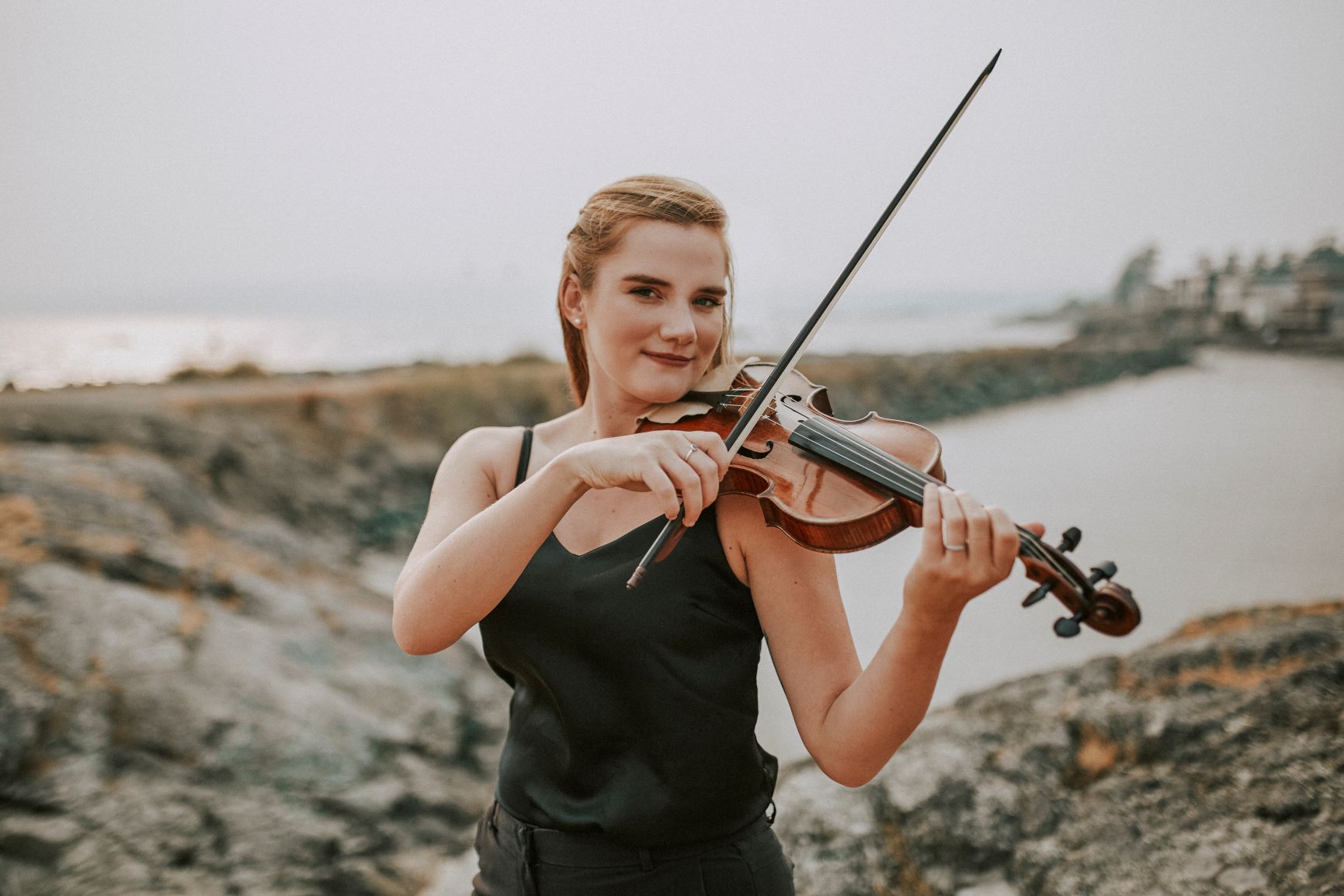
Kathryn Wiebe, Violin
Originally from Windsor, Ontario, Kathryn is an active & versatile freelance violinist and educator on Vancouver Island. Her passionate and intuitive musicianship has brought her the opportunity to perform with distinguished ensembles around Canada and the USA. Currently, she performs with the Victoria Symphony, Victoria Baroque Players, Pacific Baroque Orchestra, and Sidney Classical Orchestra.
She was born into a musical family, with both parents educators and string performers, and has many fond early childhood memories of tagging along to with her father, professional cellist and conductor, at his Windsor Symphony rehearsals. She studied at the University of Toronto and University of Michigan under the tutelage of Yehonatan Berick as a merit scholar. Over the years, she has brought her talent various music festivals, including the Vancouver Bach Festival, Berwick Academy at the Oregon Bach Festival, Brott Music Festival, Tafelmusik Baroque Summer Institute, Domaine Forget, National Youth Orchestra of Canada, and Interlochen Centre for the Arts.
As a busy entrepreneur, Kathryn is the owner, creative director, and avid arranger of Cascadia Quartet & ensembles, a highly sought-after, award-winning professional event music company, as well as a concert quartet, providing live music from Victoria to Whistler and everywhere in between. Kathryn can also be heard on the album, “La riche canadienne: The Music of Elinor Dunsmuir”, an exciting project which premieres a collection of post-romantic, recently-unearthed chamber works by the fascinating Canadian composer.
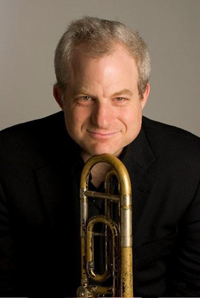
Jeremy Berkman, Sackbut
Tenor Sackbut player Jeremy Berkman was first inspired to learn the trombone through listening to recordings of Gabrielli Canzoni every holiday season growing up. Despite also spending time when young learning to play alto recorder, it is more modern music that overtook his education and led him to complete degrees in music at Oberlin Conservatory and the Juilliard School. He currently holds leading positions with Vancouver Opera’s Orchestra, A Touch of Brass Quintet, the Jill Townsend Big Band, cellist Peggy Lee’s sexet (The Peggy Lee Band) and Turning Point Ensemble, where he also serves as Director of Education and Community Engagement. Honoured with Vancouver’s Mayor’s Award for music in 2011, Jeremy has found in Vancouver a community of entrepreneurial, creative, and talented colleagues with whom he has joined to participate and in some cases produce numerous incredibly inspiring musical and interdisciplinary efforts. He is very thrilled to be invited by Jacob Gramit to participate in this Lutheran Vespers for Troubled Times production, and find in its music-making the circles of life and truth.
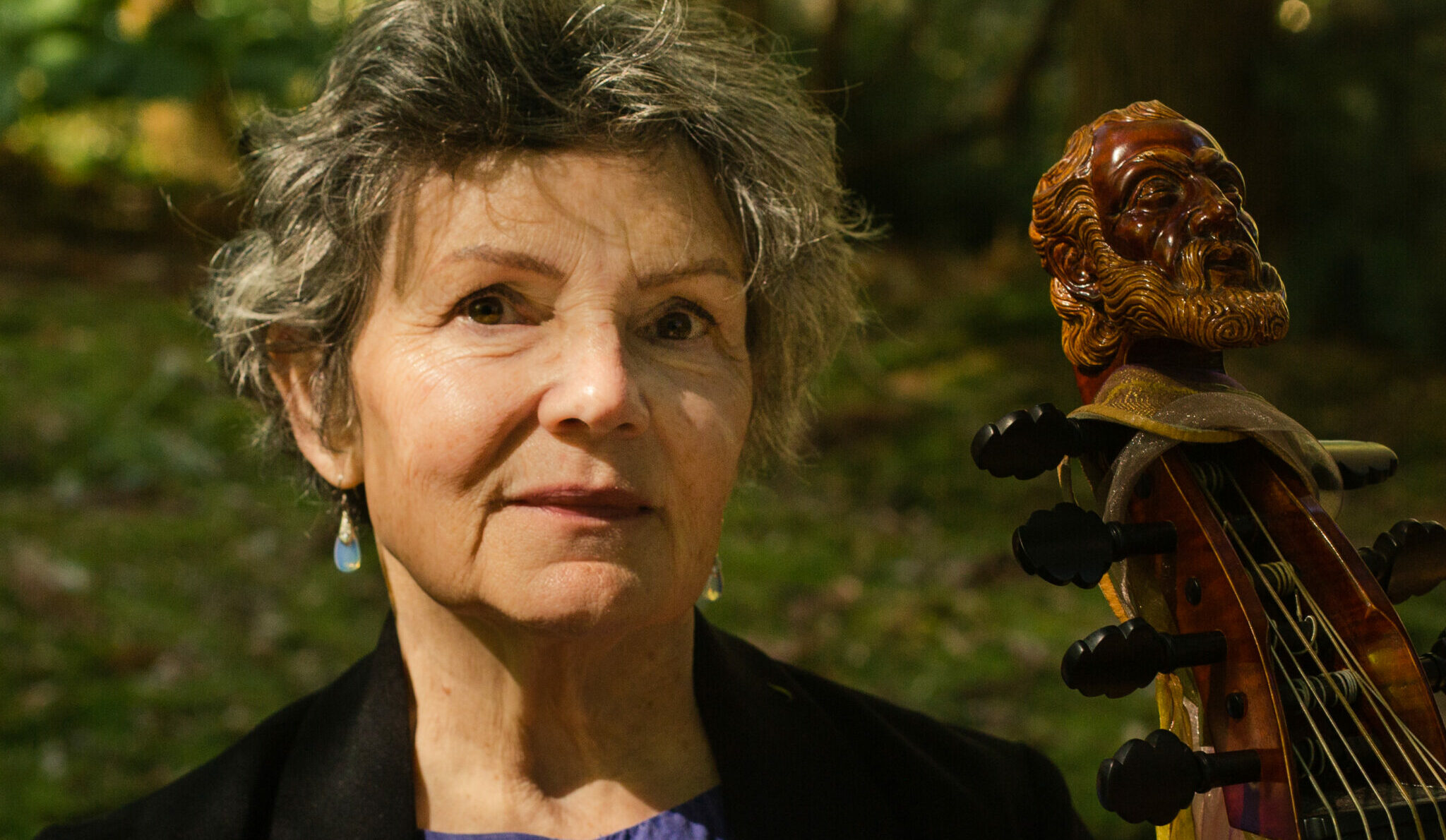
Natalie Mackie, Viola da Gamba
Natalie Mackie studied cello at the Conservatoire de Musique (Québec), followed by a degree from the School of Music, University of British Columbia. While at UBC she was introduced to the viola da gamba, and following graduation, she pursued further studies at the Koninklijk Conservatorium in The Hague. Natalie has played with many ensembles in Canada and the US, including New World Consort, Les Coucous Bénévoles, Tafelmusik, Portland, and Seattle Baroque Orchestras, Les Voix Humaines, Tempo Rubato, Les Voix Baroque, Oregon Bach Festival Orchestra, Victoria Baroque, and Vancouver Intercultural Orchestra among others. Natalie is a member of Pacific Baroque Orchestra and the chamber ensemble “La Modestine”- both Vancouver-based ensembles. She has toured throughout Canada, Europe, and the US and recorded for Radio France, German Radio, BBC, CBC, and NPR, as well as the Canadian label Atma Classique. Natalie is a regular performer in the Pacific Baroque Festival, held annually in Victoria, BC, and teaches in the Baroque Orchestra Mentorship Program at the University of British Columbia.
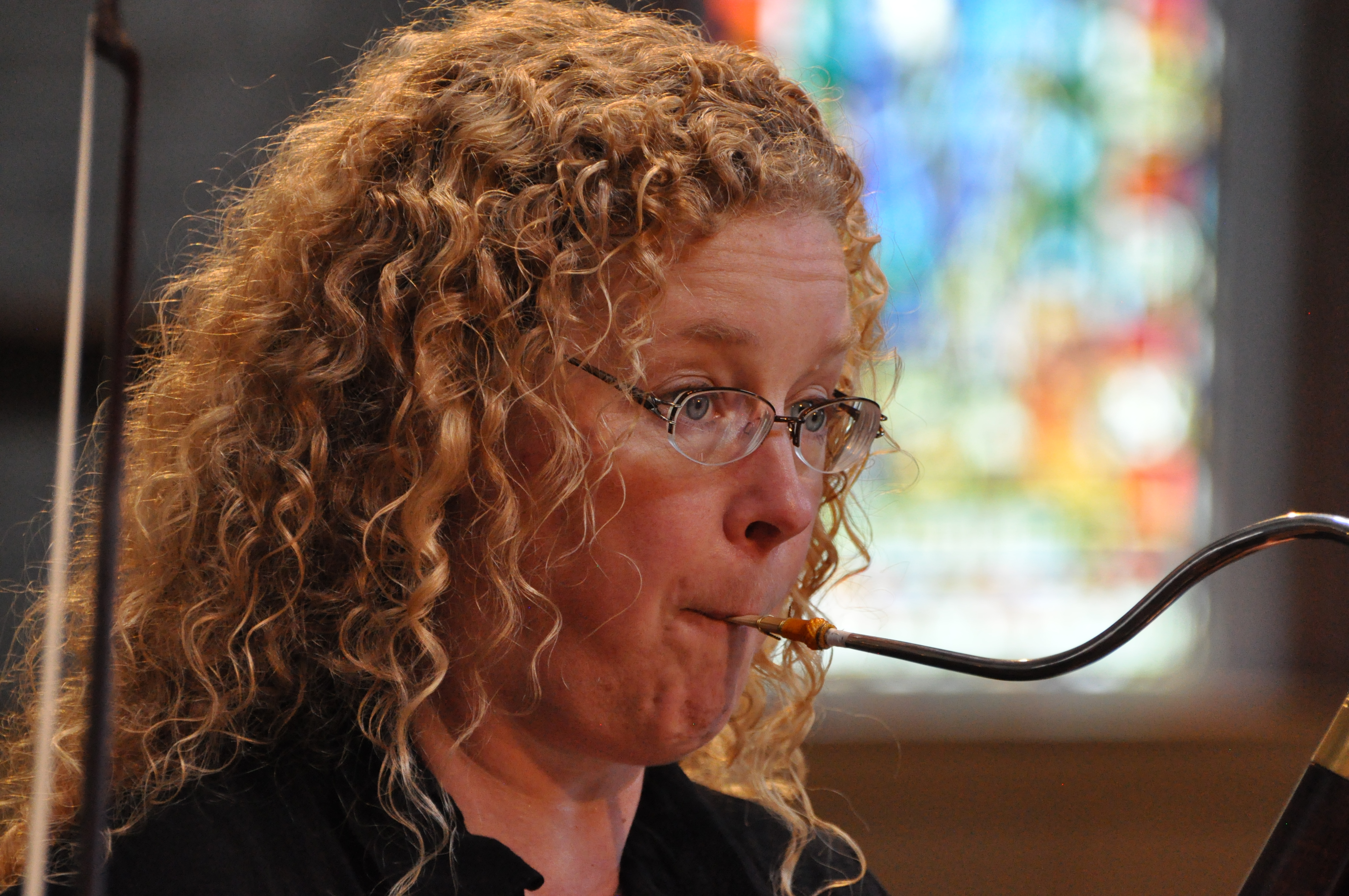
Katrina Russell, Dulcian
Katrina Russell has a diverse performance background as a bassoonist, with repertoire ranging from the Renaissance to contemporary music, and from orchestral playing to solo appearances. Prior to moving to Vancouver Island, she lived in Britain, and as a specialist in historical performance, she played and recorded with many of the foremost period instrument ensembles in Britain and Europe. As a member of these groups Katrina has toured widely, appearing at many leading festivals around the world from Perth (Australia), to Mostly Mozart (Lincoln Center, New York), and the BBC Proms. On modern bassoon she has appeared with groups ranging from The London Chamber Orchestra (UK), to the New York Philomusica, and the Vancouver Symphony, Victoria Symphony, and other Canadian orchestras. The past number of years have seen her appear with various West Coast period instrument ensembles, including Early Music Vancouver, Victoria Baroque, and The Pacific Baroque Orchestra.
Katrina taught for several seasons at the Comox Valley Youth Music Centre and the Victoria Conservatory Summer Academy. She is also currently on Faculty at the Nanaimo Conservatory of Music, and teaches at the University of British Columbia as part of the Baroque Orchestra Mentorship Programme in association with Early Music Vancouver.
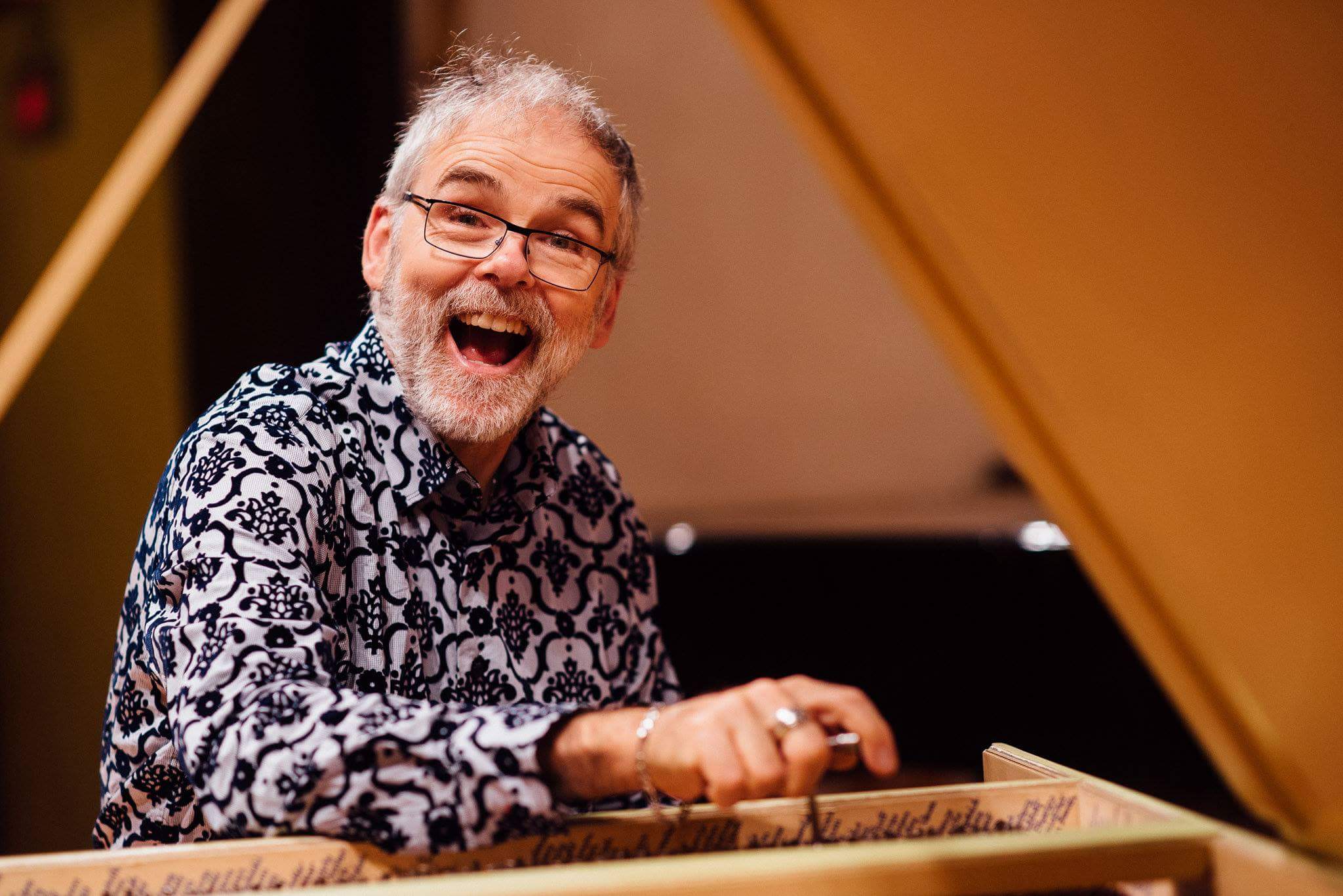
Michael Jarvis, Organ
Michael Jarvis is one of Canada’s finest harpsichordists, fortepianists and continuo players and is in demand as a collaborative artist. In addition to performing across Canada, he has performed as soloist and continuo player throughout the USA, England, Italy and Bermuda.
Michael Jarvis may be heard on the Marquis Classics, Hungaroton, ATMA, Naxos, Solitudes and Avalon CD labels, and has often broadcast nationally and regionally for the CBC, as well as nationally across the US on NPR. He and violinist Paul Luchkow’s CD of Hummel’s op. 5 violin sonatas was chosen as a finalist as best classical album of the year in the Western Canadian Music Awards 2013. His most recent CD with Paul, Michel Corrette’s Sonatas for Harpsichord and Violin, Op. 25 (on mythological themes), was released to excellent reviews on the Marquis CD label in Spring 2017.
Michael was featured on two national Canadian television specials for Bravo: “A Baroque Christmas” and “A Baroque Easter”. He was also co-host and star of the 13-part television series “Come into the Parlour” for Bravo-TV. He was recently appointed conductor of the Bach on the Rock chamber choir and orchestra on Salt Spring Island.
He has taught harpsichord and continuo and lectured many times at the University of Toronto. He has taught harpsichord performance at Wilfred Laurier University in Waterloo, Ontario and at Havergal College, Toronto, and taught fortepiano at UBC.
When he is not playing early music, Michael is an avid collector of early jazz and early opera 78 rpm recordings and is an early phonograph restorer. Michael lives in Victoria, BC.
Note: Michael Jarvis tragically passed away on December 25, 2020. His obituary can be found here.

